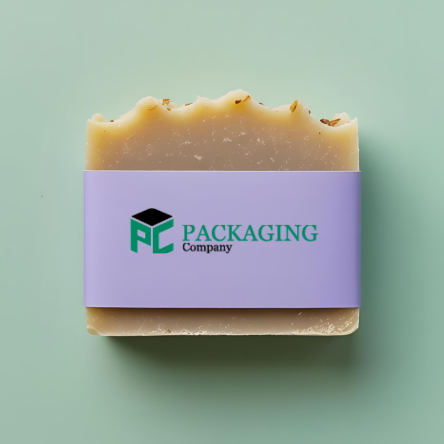Introduction If you’ve ever washed your face and felt an uncomfortable tightness or redness afterward, chances are your skin is sensitive. Choosing the right soap for sensitive skin isn’t just about cleansing—it’s about protecting, nourishing, and maintaining your skin’s natural barrier. With so many options in the market, the wrong choice can lead to irritation,
Introduction
If you’ve ever washed your face and felt an uncomfortable tightness or redness afterward, chances are your skin is sensitive. Choosing the right soap for sensitive skin isn’t just about cleansing—it’s about protecting, nourishing, and maintaining your skin’s natural barrier. With so many options in the market, the wrong choice can lead to irritation, dryness, or even breakouts. Let’s walk through a complete guide to help you make the right choice.
Understanding Sensitive Skin
Sensitive skin is more than just occasional irritation. It refers to a skin type that reacts quickly to external factors like harsh chemicals, fragrances, and even weather changes. Symptoms include redness, itching, dryness, or burning sensations. Factors like genetics, lifestyle, or medical conditions (eczema, rosacea, psoriasis) often contribute to skin sensitivity.
How Soap Affects Sensitive Skin
Soap plays a major role in either calming or worsening sensitivity. A soap with a balanced pH keeps your skin barrier intact, while harsh, alkaline soaps strip away natural oils. Over time, this weakens the skin’s defense, making it prone to flare-ups. That’s why dermatologist-approved, fragrance-free, and gentle cleansers are always recommended.
Key Ingredients to Look For
When choosing soap, keep an eye out for skin-loving ingredients:
- Moisturizers like glycerin, aloe vera, and shea butter keep skin soft and hydrated.
- Natural oils like coconut oil and olive oil nourish while maintaining balance.
- Hypoallergenic options ensure reduced risk of allergic reactions.
These ingredients work together to keep your skin cleansed without stripping away its natural defenses.
Ingredients to Avoid in Soap
Not all soaps are created equal. Sensitive skin should stay away from:
- Sulfates (SLS, SLES): Harsh foaming agents that irritate.
- Artificial fragrances and dyes: Top culprits for allergic reactions.
- Parabens & alcohol-based soaps: Often cause dryness and inflammation.
Types of Soap for Sensitive Skin
Not sure whether to go for a bar or liquid soap? Here’s a quick guide:
- Bar Soaps: Gentle, moisturizing bars with natural oils are excellent for daily use.
- Liquid Soaps: Easier for hygiene but check for hydrating agents.
- Organic & Handmade: Free from synthetic chemicals, often safer.
Some dermatologist-recommended brands even make specialized sensitive-skin soaps with oat extracts or ceramides.
Choosing Soap Based on Skin Concerns
Sensitive skin isn’t one-size-fits-all. You may also have other concerns:
- Dry Skin: Look for creamy soaps with shea butter or milk.
- Oily Skin: Go for lightweight, oil-balancing formulas.
- Acne-Prone: Choose antibacterial yet gentle options (like tea tree oil).
- Eczema or Psoriasis: Stick to fragrance-free, dermatologist-tested soaps.
Packaging and Its Role in Skincare
Most people overlook packaging, but it’s vital for product safety. Custom soap boxes not only protect delicate formulations from contamination but also extend shelf life by preserving the product’s integrity. Eco-friendly packaging is trending, as customers prefer sustainable options that are safe for the skin and the planet.
Cosmetic Boxes and Skincare Branding
When buying skincare, presentation matters. Cosmetic boxes make a brand look trustworthy by listing complete ingredient details, usage instructions, and certifications. Plus, innovative packaging designs can attract customers while ensuring the soap inside remains fresh and safe.
Luxury Packaging and Perfume Soaps
For premium skincare products, packaging is almost as important as the soap itself. Perfume boxes create a sense of luxury, elevating the buying experience. Luxury soaps often come in beautifully designed packaging that not only appeals visually but also psychologically enhances the perception of quality.
Dermatologist Tips for Sensitive Skin
Experts recommend:
- Patch testing every new soap before using it on your face or body.
- Limiting cleansing to avoid stripping skin oils.
- Keeping skin hydrated with a mild moisturizer post-wash.
DIY Natural Soap Options
Love a hands-on approach? You can make your own soap using natural oils, goat milk, or oatmeal for a gentle cleanse. Homemade soaps are chemical-free and customizable for your skin type. However, if your skin reacts severely, avoid DIY and stick to dermatologist-approved options.
Frequently Asked Questions When Buying Soap
-
How often should sensitive skin be washed? Once or twice daily is enough.
-
Can kids use sensitive-skin soap? Yes, but choose extra-gentle, fragrance-free formulas.
-
Are fragrance-free soaps always safe? Mostly, but still check the ingredient list.
Practical Buying Tips
When in doubt:
- Always read labels carefully.
- Look for certifications like “dermatologist-tested” or “hypoallergenic.”
- Shop from trusted retailers that stock quality skincare products.
Conclusion
Choosing the right soap for sensitive skin doesn’t have to be overwhelming. By focusing on skin-friendly ingredients, avoiding harsh chemicals, and paying attention to packaging company, you can find a soap that keeps your skin calm, clean, and healthy. Remember—your skin deserves the best care, so take time to choose wisely.
FAQs
Q1. What is the safest type of soap for sensitive skin?
Mild, fragrance-free soaps with natural oils or moisturizing agents are safest.
Q2. Can sensitive skin use exfoliating soaps?
Avoid harsh exfoliants. Instead, use mild ones like oatmeal-based soaps.
Q3. Do custom soap boxes affect product quality?
Yes, good packaging helps preserve the soap’s integrity and protect it from contamination.
Q4. Is organic soap always better for sensitive skin?
Not always. While many organic soaps are gentle, some natural oils may still trigger allergies.
Q5. Should I consult a dermatologist before switching soaps?
Yes, especially if you have severe sensitivity, eczema, or recurring irritation.
















